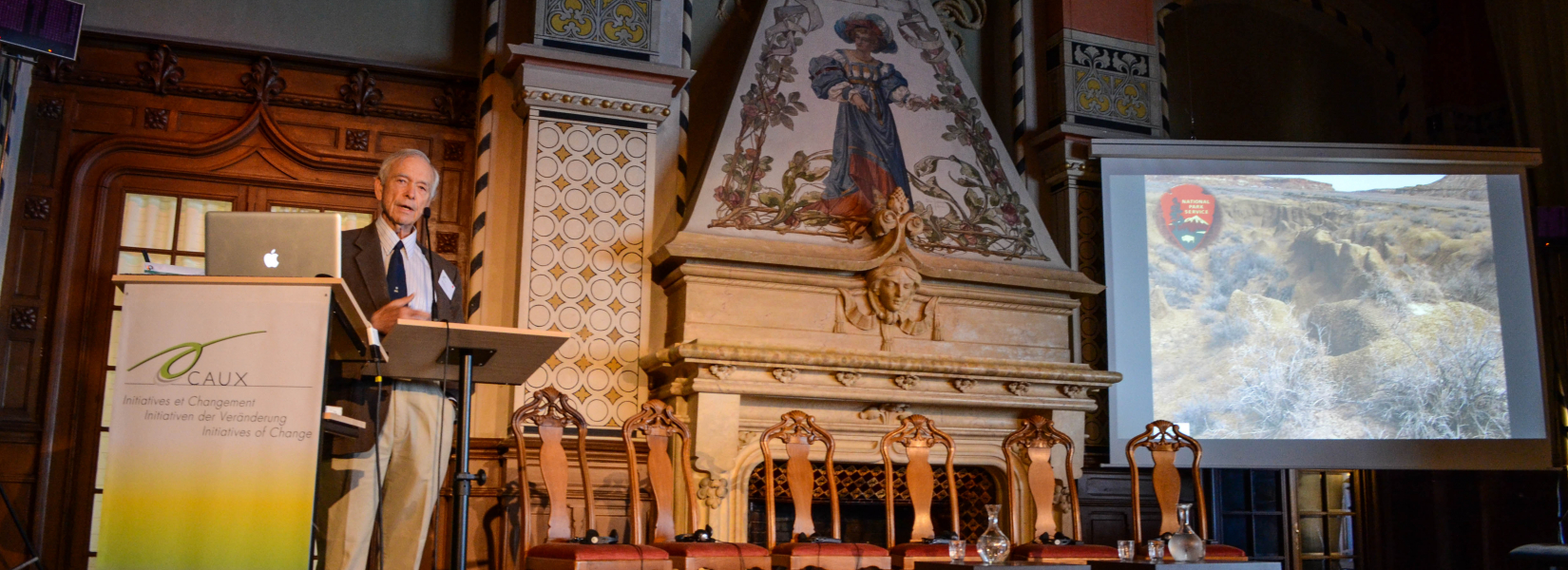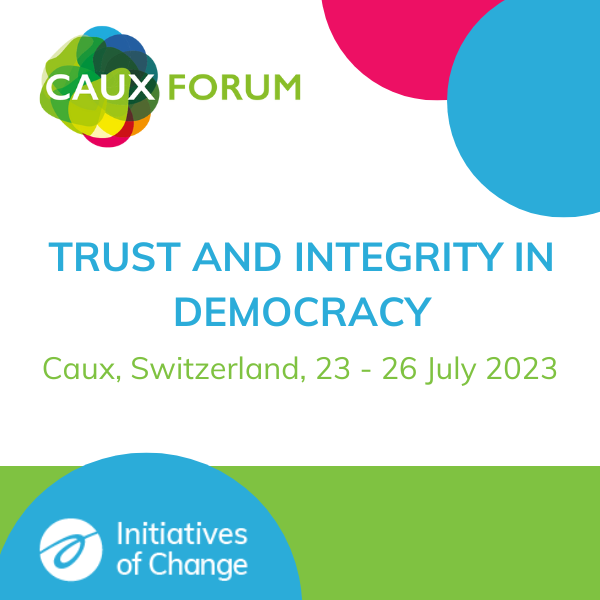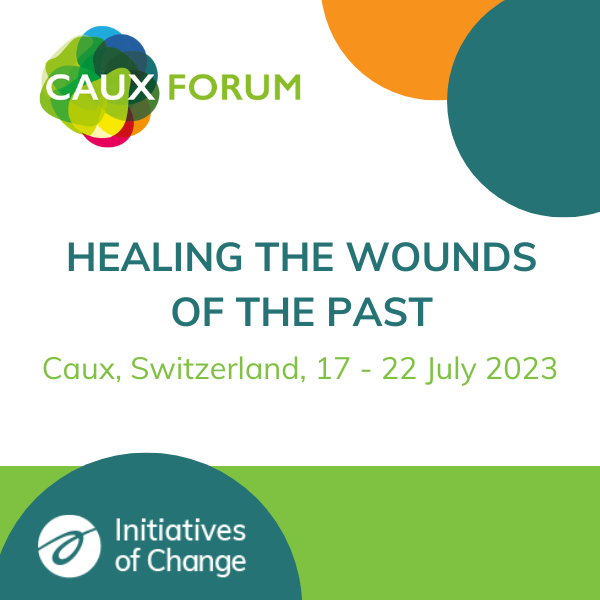CDLS 2015: Now is the time to act
15/07/2015The third ‘Caux Dialogue on Land and Security’ conference came to an end this past Tuesday, 14 July, after five days of serious questioning filled with lively conversations, intelligent solutions, personal stories and introspective insights.
The dialogue adopted a traditional yet complex triple bottom line approach with days focusing on the environment, economic and social aspects respectively, enabling a productive horizontal and vertical exchange between specialists, policymakers and civil society. On day two, participants dived into scalable solutions for sustainable land management; day three looked at trade within the globalised market context with an emphasis on water use; day four delved into the trust-building aspects, and finally the conclusion on day five was a call for action. The conference programme also included a book launch, a ‘fireside conversation’, a musical, a movie premiere and over a dozen afternoon workshops.
One conclusion of the dialogue is that in order to move forward, there needs to be, in terms of governance, a top-down as well as a bottom-up approach. Small-scale farmers need to unite and talk to each other, particularly in dry lands, in order to exchange expertise and also to increase the value of their production at their farm gates. It was said that this could be done either by bringing in processing, canning and agro alimentary stages to their supply chains but also by bringing organic and ecological methods to their productions. It was also agreed that land restoration could only be achieved with a combined approach using climate change mitigation practices to produce and also sequestrate carbon.
Water management, questions of leadership and governance also came out as key factors. During the final plenary, Guillaume Benoit, from the French Water Partnership group on water and food security at the Ministry for Agriculture presented the 4/1000 Initiative, a framework which combines all three Rio Conventions; the Convention on Biological Diversity (CBD), the United Nations Framework Convention on Climate Change (UNFCCC), United Nations Convention to Combat Desertification (UNCCD). These conventions work with the CFS (Committee for Food Security), which aims to incorporate biodiversity and climate considerations in addressing the problems surrounding global food security. An annual 4 per 1000th growth rate of the global carbon soil would store 75% of greenhouse gas emissions, whilst preserving levels of biodiversity and feeding human populations. This structure aims to increase collaboration with NGOs, farmers associations, research institutions and also the private sector.
Brendan Bromwich, Initiatives for Land, Lives and Peace and CDLS convenor of the dialogue, spoke of the duality of the land restoration issue: facing both a ‘virtuous circle as well as a vicious cycle’. We are forced to look at a complex, scientific technical issue through a human magnifying glass. A common theme throughout the dialogue was the idea of ‘breaking silos’. It is increasingly being recognized that government, NGOs and businesses can only make significant breakthroughs if we work collaboratively across sectors with a tripartite vision
While the international community is waiting for the United Nations to deliver a clear set of goals (the 17 Sustainable Development Goals), and a climate negotiations happening this December in Paris, the overall message of the CDLS is clear: now is the time to act. Louise Baker from the UNCCD insisted on the upcoming implementation agenda, as land degradation neutrality is the objective of the international community. We need to be more ambitious, we should not be afraid of technology and ‘everybody needs to take responsibility’.
During the dialogue, A Kenyan delegation, including Gabriel Lagat, Deputy Governor of the Elgeyo Marakwet County in Kenya, met with several others from other Kenyan counties and they agreed to work together on a land-peace axis. For the organizers as well as for the participants, this could mean there is a strong chance the next ‘Dialogue on Land and Security’ will take place in Kenya.































